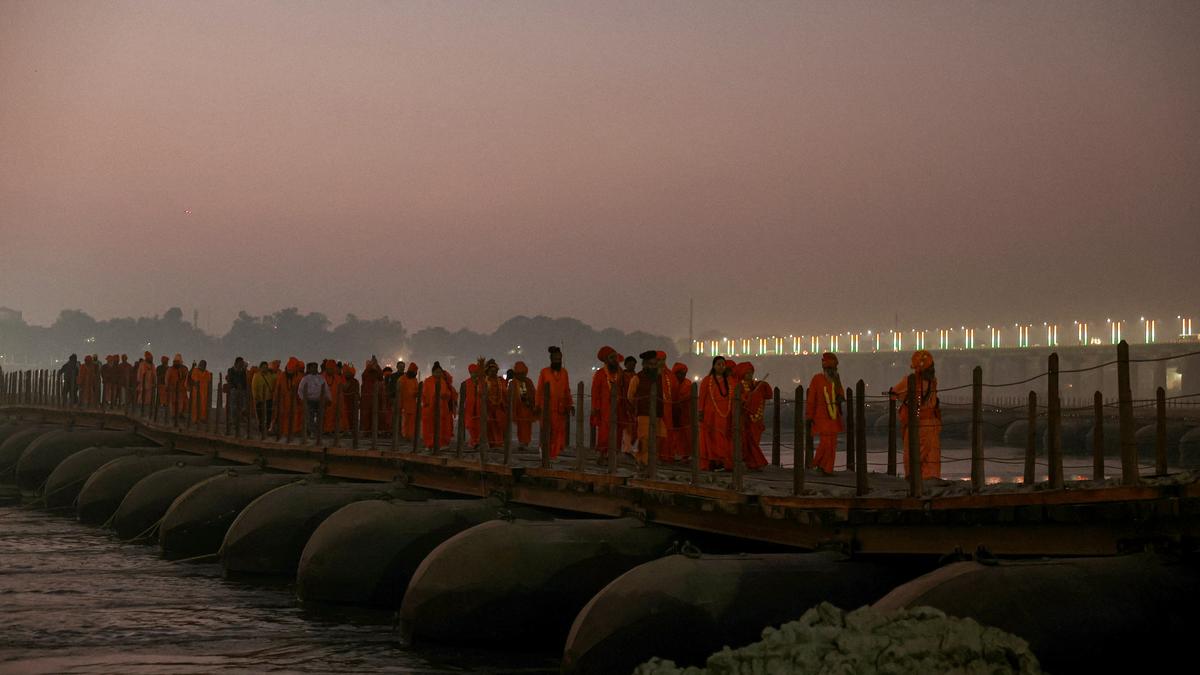 |
|
The recent expulsion of a 13-year-old girl and her guru from the Juna Akhada, a prominent Hindu monastic order in India, highlights the complexities surrounding religious traditions and the legal frameworks governing minors. The incident, which unfolded in early January 2025, sparked considerable debate regarding the balance between religious freedom and child protection. The girl, identified as Rakhi Singh, was admitted to the Akhada with the intention of becoming a sanyasin, a renunciant devoted to spiritual life. Her initiation, however, was deemed unlawful by the Akhada's governing body, leading to her immediate expulsion. This decision underscores the Akhada's strict regulations regarding the minimum age for admission, setting a threshold of 25 years for women. The contrast between the Akhada's acceptance of minor boys donated to the order and its rejection of minor girls reveals a potentially discriminatory practice within the religious institution. The seemingly contradictory rule raises critical questions about gender equality and the interpretation of religious doctrines within a modern legal framework. The Akhada’s swift and decisive action suggests a commitment to upholding its rules, yet the circumstances surrounding Rakhi’s admittance raise concerns about the role of consent and the potential for exploitation within religious contexts. The actions of Mahant Kaushal Giri, Rakhi’s guru, who initiated the girl without the Akhada’s approval, further complicates the matter. His seven-year expulsion serves as a deterrent against future transgressions, yet it also begs the question of the extent to which he was aware of and adhered to the Akhada’s regulations. Was his act a genuine oversight or a deliberate breach of established norms?
The case brings to light the precarious position of young individuals within religious institutions. While the Akhada’s rules may aim to protect its members, the expulsion of Rakhi raises questions about the safeguards in place to prevent potential harm to vulnerable children. It is crucial to consider the potential psychological impact on a young person forced to abandon a life path chosen with, presumably, sincere conviction. The narrative provided by Rakhi’s mother, Reema Singh, paints a picture of a child who, inspired by her guru’s teachings, felt a strong calling towards religious life. Whether Rakhi's decision reflected a genuine spiritual calling or undue influence warrants careful consideration. This raises a critical point about the delicate balance between individual autonomy and parental authority in such sensitive situations. The parents’ decision to honor their daughter’s aspiration, however misguided it may seem in retrospect, needs to be assessed within the sociocultural context of their lives and their faith. The role of family in the context of religious initiation and renunciation is a critical consideration that necessitates further analysis.
Beyond the immediate implications for Rakhi and her guru, this case opens a wider conversation on the governance of religious organizations and their interaction with secular laws. The legal complexities surrounding religious practice and the protection of children are intertwined and require careful attention. The expulsion serves as a reminder of the importance of clear guidelines and transparent procedures in religious institutions to prevent potential misuse and safeguard the rights of their members, especially minors. The Akhada’s actions, while decisive, raise questions about its internal mechanisms for oversight and preventative measures. The incident should prompt a broader review of the Akhada’s admission policies and practices to ensure that future incidents are avoided. It also highlights the need for a more robust system of monitoring and accountability to prevent exploitation and ensure the well-being of vulnerable individuals within similar religious settings. This case should serve as a cautionary tale, prompting critical reflection on the interplay between religious tradition, child protection, and legal responsibility within the broader Indian social context. Further investigation into the practices of the Juna Akhada and similar institutions is warranted to ensure the protection of children and prevent similar situations from arising in the future. The case also highlights the need for greater awareness and education surrounding child protection within religious communities.
Source: 13-year-old girl who joined Juna Akhada recently expelled with her guru
